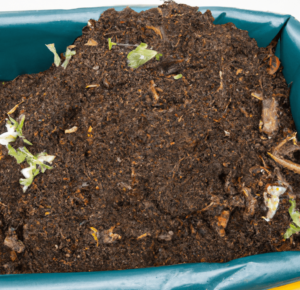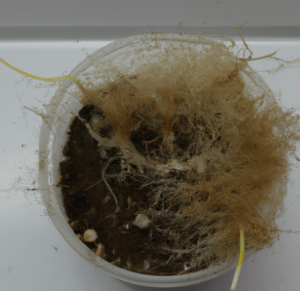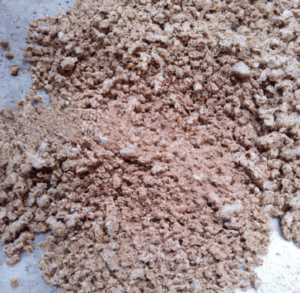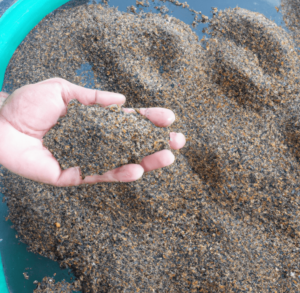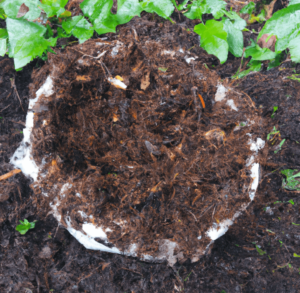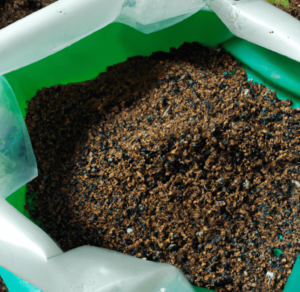Seaweed, commonly referred to as marine macroalgae, has long been used as a food source and for a variety of therapeutic uses. These days, seaweed is becoming more and more well-liked as a natural fertilizer because of all the advantages it offers to soil and plants. Seaweed is emerging as a promising substitute for conventional chemical fertilizers as demand for organic and sustainable agriculture rises.
It makes an excellent fertilizer for plants because it is a rich source of nutrients like nitrogen, phosphorus, potassium, and other micronutrients. Normally, seaweed is transformed into a liquid or powder form for use as fertilizer, which may then be put into the soil or water used to water plants. Here are the benefits of using seaweed as a fertilizer!
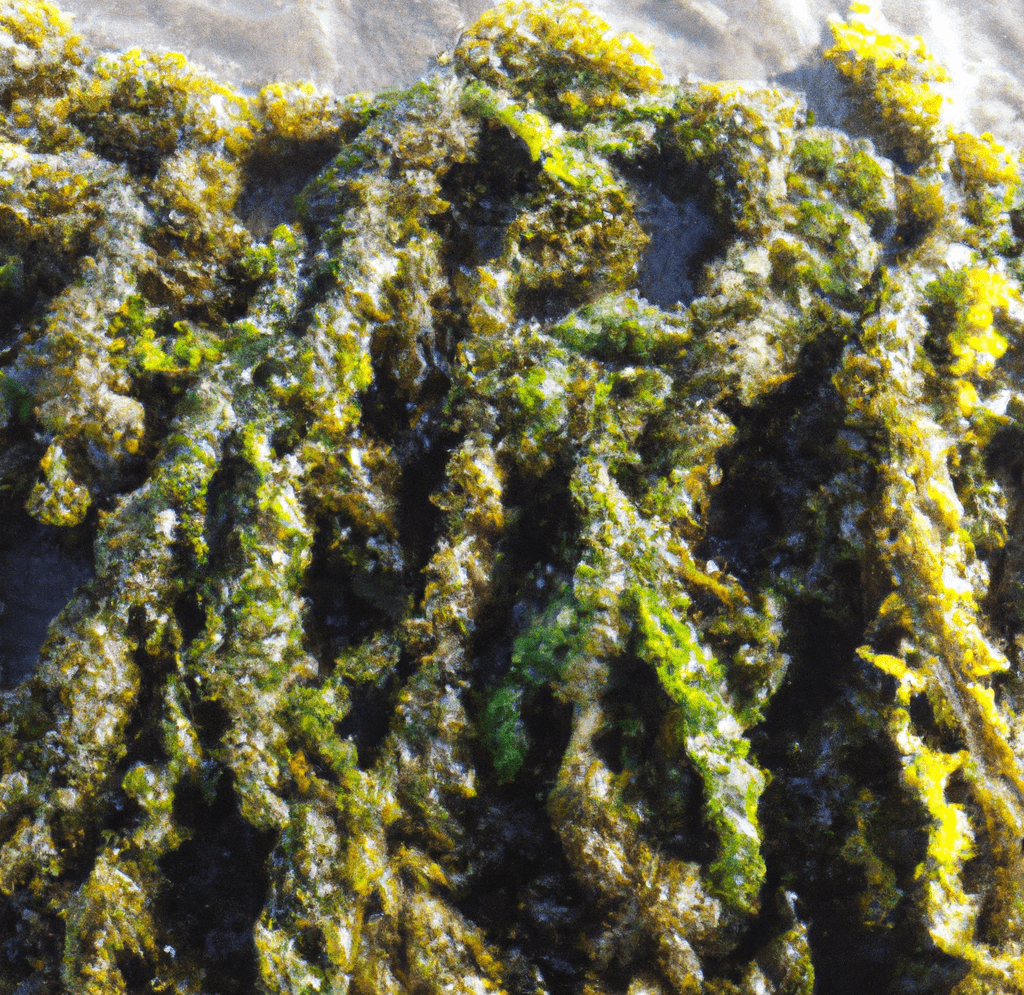
Nutritional Benefits of Seaweed as a Fertilizer
The benefits of using seaweed as a fertilizer include:
- Better water retention: Plants need less frequent watering since seaweed contains natural chemicals that improve water retention just like the role mycorrhizae play in plant growth.
- Root development that is stronger: Seaweed extract can promote root development that is stronger, allowing plants to absorb more nutrients from the soil.
- Enhanced ability to handle stress: It has been demonstrated that seaweed can increase a plant’s ability to withstand stress caused by conditions including illness, high heat, and drought.
- Enhanced nutrient absorption: Nitrogen, phosphorus, and potassium are three macro- and micronutrients that are critical for plant growth and are abundant in seaweed.
High Levels of Macronutrients (Nitrogen, Phosphorus, and Potassium)
The abundance of macronutrients in seaweed, particularly nitrogen, phosphorus, and potassium, are some of the benefits of using seaweed as a fertilizer. These necessary nutrients are required for plant growth and development as well as maintaining the quality of the soil and water. For optimum growth and health, plants need enough nitrogen, phosphorus, and potassium.
While phosphorus is crucial for root growth and energy storage, nitrogen plays a key role in the formation of chlorophyll and leaf growth. The overall health of plants, including their ability to withstand stress and fend off illness, depends on potassium. When seaweed is put into the soil, it offers these crucial macronutrients in a balanced, slow-release form, lowering the likelihood of overfertilization and other unfavorable environmental effects.
Seaweed aids in enhancing soil structure and water quality in addition to supplying crucial macronutrients. Seaweed contains minerals and organic substances that enhance the microbial activity in the soil which can increase water retention and lessen soil erosion. Seaweed is a useful tool for preserving water quality and sustaining aquatic habitats since it also has the capacity to lower the concentrations of contaminants in water.
Rich in Micronutrients and Trace Elements
Due to its abundance of micronutrients and trace elements that are crucial for plant growth, the benefits of using seaweed as a fertilizer are plenty. These nutrients are frequently deficient in conventional chemical fertilizers and soil that has had its natural mineral content depleted by misuse. You can aid in reestablishing the balance of important nutrients in the soil and produce healthier, more resilient plants by introducing seaweed fertilizer into your gardening or farming practices. Iron, zinc, manganese, magnesium, and boron are a few of the important micronutrients and trace elements present in seaweed fertilizer.
These substances are essential for the growth and health of plants in a number of ways, including photosynthesis, enzyme activity, and cell division. The benefits of seaweed fertilizer for plants go far beyond just its nutrient content. For instance, seaweed has a high level of organic matter, which enhances soil structure and water-holding capacity. Additionally, it contains organic plant hormones that may support strong root formation and overall plant growth.
Can Improve Soil Health and Structure
The benefits of using seaweed as a fertilizer include its ability to significantly improve the health and structure of the soil. Seaweed contains minerals and organic substances that can enhance soil microbial activity, enhancing soil fertility and structure. Although the soil is a complex and dynamic ecosystem that fosters plant growth, it is also easily drained of organic matter and vital nutrients.
Chemical fertilizer use has the potential to significantly deteriorate soil health, resulting in poor soil structure and decreased fertility. However, seaweed fertilizer offers a natural, sustainable substitute that helps to strengthen the structure and health of the soil. Amino acids, vitamins, and hormones are among the organic substances and minerals present in seaweed that can support microbial activity in the soil and improve water retention and lessen soil erosion. Even in difficult conditions, this increased soil structure may make it easier for plants to grow and survive.
Furthermore, seaweed fertilizer is a slow-release fertilizer, which means that it gives plants a consistent supply of nutrients over time, lowering the possibility of over-fertilization and other adverse environmental effects. The growth of a variety of crops, from vegetables to ornamental plants, can be supported by this consistent supply of nutrients, which can also assist to increase soil fertility.
Environmental Benefits of Using Seaweed as a Fertilizer
Seaweed is a rich source of nutrients for plants, and using it as a fertilizer has many positive effects on the environment as well. The benefits of using seaweed as a fertilizer for the environment include:
- Sustainable source: Seaweed is a naturally occurring form of organic matter, which can serve to enhance the soil’s structure, ability to retain water, and nutrient availability.
- Waste reduction: Seaweed is a completely natural and biodegradable source of plant nutrition, unlike chemical fertilizers. It does not increase landfill waste or the accumulation of dangerous substances in the soil.
- Support for sustainable agriculture: Seaweed may be gathered from the ocean sustainably as a renewable resource. You can support environmentally friendly agricultural techniques that save the land and the ocean by utilizing seaweed as fertilizer.
- Reduced greenhouse gas emissions: The manufacture and delivery of chemical fertilizers frequently depend on fossil fuels, which results in significant greenhouse gas emissions. Seaweed, on the other hand, is a low-carbon fertilizer that has a negligible negative influence on the environment during production and transportation.
Sustainable Source of Fertilizer
In contrast to conventional chemical fertilizers, seaweed is an organic, renewable resource that can be taken from the ocean and has several advantages for both plant growth and the environment. The sustainability of using it is one of the benefits of using seaweed as a fertilizer. Seaweed is a resource that is readily available and renewable, as opposed to chemical fertilizers, which are frequently generated from limited resources and may have a harmful impact on the environment.
Seaweed is a sustainable and greener alternative to conventional chemical fertilizers because it can be obtained from the ocean. In addition to being environmentally friendly, seaweed fertilizer is a powerful tool for accelerating plant growth. A balanced and slow-release source of nutrients, the minerals and organic compounds in seaweed can boost plant growth and health.
This slow-release method gives plants a consistent supply of crucial nutrients while simultaneously lowering the risk of overfertilization and other detrimental effects on the environment. Seaweed can be used as fertilizer by gardeners to supply their plants with the nutrients they require to develop and thrive. Seaweed can be a useful tool for encouraging healthy and sustainable plant growth, whether you’re producing veggies, herbs, or ornamental plants.
Can Reduce the Use of Synthetic Fertilizers
While reducing the use of potentially dangerous pesticides, you can support healthy growth and soil health by introducing seaweed extract into your plant care procedures which is one of the benefits of using seaweed as a fertilizer:
- Better plant health: Synthetic fertilizers frequently have high nitrogen content, which can encourage excessive leaf growth at the expense of root development. Seaweed fertilizer, on the other hand, is a well-balanced source of nutrients that can support healthy plant growth in a more organic and sustainable manner.
- Improved soil health: Using synthetic fertilizers can cause the accumulation of hazardous substances in the soil, which lowers the fertility and general health of the soil. The soil structure and water retention of a plant can be improved by using seaweed fertilizer, which is a natural and biodegradable source of plant nourishment.
- Reduced environmental impact: Synthetic fertilizers frequently use non-renewable resources and produce and transport greenhouse gas emissions. You may lessen your influence on the environment and promote sustainable agricultural practices by using less synthetic fertilizers and more seaweed fertilizer.
- Water efficiency: Water efficiency is improved because synthetic fertilizers occasionally leach out of the soil and into the neighboring waterways, where they cause pollution and deteriorate the quality of the water. Contrarily, seaweed fertilizer can help the soil retain more water, which reduces the need for regular watering and lowers the chance of runoff.
Can Help Reduce Greenhouse Gas Emissions
By absorbing carbon dioxide through photosynthesis and storing it in their tissues and the soil, plants significantly reduce greenhouse gas emissions. A healthy soil that contains a lot of organic matter also works as a carbon sink by storing carbon and gradually releasing it over time. By lowering the energy needed for irrigation, effective water management strategies, such as limiting evaporation and runoff, can also aid in lowering emissions.
Another effective strategy for lowering emissions is seaweed. Large volumes of carbon dioxide from the atmosphere can be absorbed by seaweeds, which can also be applied to the soil as fertilizer to strengthen it. Seaweed can also be used to make biofuels, a cleaner substitute for fossil fuels that can help cut down on transportation-related emissions. There are several advantages to managing plants, soil, and water to reduce greenhouse gas emissions.
We can reduce climate change and its effects, such as rising sea levels and more frequent extreme weather events, by cutting emissions. These methods can also raise agricultural yields, enhance soil health, and offer a more sustainable supply of food and fuel. These methods, when used properly, can contribute to a future for all of us that is more robust and sustainable.
Can Improve Soil Health and Structure
The ability to strengthen the structure and health of the soil is one of the benefits of using seaweed as a fertilizer. Seaweed fertilizer can be extremely helpful in supporting healthy soil, water retention, and plant growth, whether it is utilized in small-scale home gardens or in large-scale agricultural operations:
- Natural: Seaweed is a natural source of organic matter, which can serve to strengthen the structure of the soil and encourage water retention. You may encourage healthier soil overall and boost the growth of beneficial microbes by adding seaweed to your soil.
- Increased soil water retention: Seaweed fertilizer can help increase soil water retention, lowering the requirement for regular irrigation and lowering the risk of runoff. Seaweed fertilizer can help to boost healthy plant growth and lessen the danger of drought stress by holding onto more water in the soil.
- Access to nutrients: Seaweed is a rich source of trace elements and micronutrients, which are vital for plant health and development. You may aid in giving your plants the nutrients they require to thrive while also fostering a healthy soil structure by adding seaweed fertilizer to your soil.
- Less reliance on chemical fertilizers: Chemical fertilizers frequently degrade soil quality by encouraging the accumulation of hazardous substances. Instead of using synthetic fertilizers, you may encourage healthier, more sustainable soil habits by adding seaweed fertilizer to your soil.
Whether you are a small-scale farmer or a home gardener, adding seaweed fertilizer to your soil can assist to support the health of the environment while encouraging healthier, more vibrant plants.
How to Use Seaweed as a Fertilizer
For millennia, people have used seaweed as a natural fertilizer for crops and plants. This is because it contains a wide variety of vital nutrients and minerals, such as nitrogen, potassium, and phosphorus, all of which are crucial for plant growth. Micronutrients like iron and zinc, which are essential for robust, growing plants and healthy soil, are also abundant in seaweed.
Now that you know about the benefits of using seaweed as a fertilizer, here’s how to use it:
- Seaweed can be collected by hand or with a tiny, portable rake. When the seaweed is most exposed, which is during low tide, it is ideal to harvest it.
- Rinse the seaweed well after harvesting to get rid of any salt or sand.
- The seaweed should next be cut into little pieces and put out to dry in the sun.
- When dried, seaweed can be blended with compost or water to create a powder or liquid fertilizer.
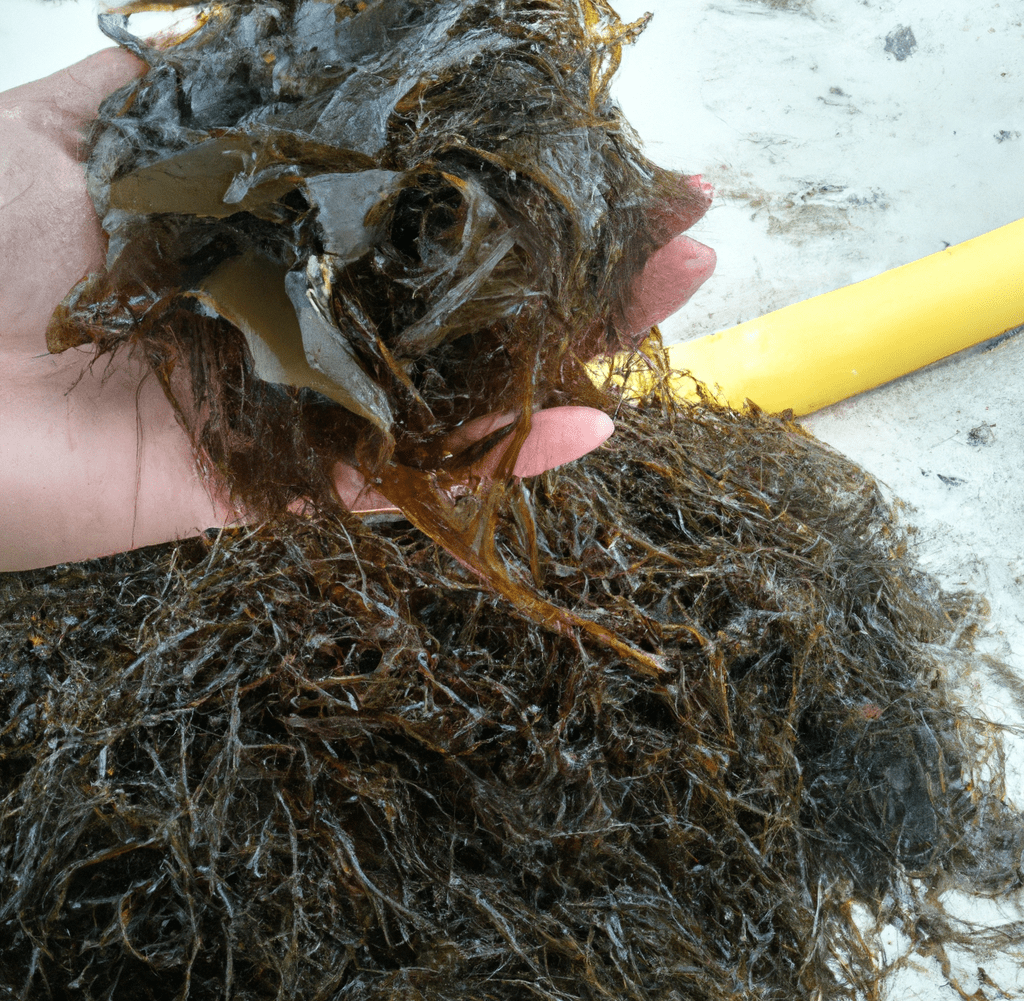
How to Apply Seaweed as a Fertilizer to Different Types of Crops
Learning about the benefits of using seaweed as a fertilizer? Here’s how wot apply it:
- Soil: Seaweed can be used as a mulch or added straight to the soil as a powder or liquid.
- Seedlings: The water used to water seedlings can be enriched with a seaweed-based fertilizer.
- Established Plants: Seaweed can be incorporated into the soil around the base of established plants.
Tips for Using Seaweed in Combination with Other Fertilizers
To increase the efficacy of other fertilizers, seaweed can be added to them. As you learn about the benefits of using seaweed as a fertilizer, keep this in mind:
- It’s crucial to remember that seaweed is slow-release and will take longer to work than chemical fertilizers when using them together.
- The advantages of both will be increased when utilizing seaweed in conjunction with other organic fertilizers, such as bone meal or compost, as the seaweed offers needed micronutrients and the compost offers essential macro and micronutrients.
Bottom Line: The Benefits of Using Seaweed as a Fertilizer
For the growth of plants and the health of the soil, the benefits of using seaweed as a fertilizer make it a popular choice. Numerous elements found in seaweed, including nitrogen, phosphorus, and potassium, are crucial for plant growth. In addition, seaweed has growth-promoting hormones and other components that can strengthen roots and promote overall plant health.
The use of seaweed as a fertilizer is anticipated to advance further in the future, possibly leading to the creation of new goods and formulas that can more effectively benefit crops. In conclusion, using seaweed as a fertilizer has the potential to be an efficient and long-lasting method of enhancing the health of the soil and plant development. By utilizing seaweed’s advantages, we can encourage the growth of crops in healthier, more fruitful conditions, improving food security and fostering a more sustainable future for all of us.
The Benefits of Using Seaweed as a Fertilizer FAQs
What are the benefits of using seaweed as a fertilizer?
An excellent organic fertilizer with many benefits for soil and plants is seaweed. Better water retention, greater root growth, improved stress tolerance, improved nutrient absorption, high levels of macronutrients, and improvements to soil structure and water quality are just a few of its advantages. It can enhance the health and structure of the soil and is also rich in micronutrients and trace elements. Because it is a sustainable supply of organic matter, minimizes waste, and can lessen pollutant concentrations in water, using seaweed as a fertilizer also helps the environment.
What exactly are macronutrients and how do they help plants?
The maintenance of soil and water quality, plant growth, and development all depend on macronutrients. These nutrients, which are found in large quantities in seaweed, include nitrogen, phosphorus, and potassium. For optimal growth and health, plants require sufficient amounts of these macronutrients. While nitrogen is important for the creation of chlorophyll and leaves, phosphorus is essential for the development of roots and the storage of energy. Potassium is crucial for a plant’s overall health, including its resilience to stress and resistance to disease.
Why are micronutrients crucial for plant growth? What are they?
Micronutrients are necessary elements that plants need in little amounts. Seaweed is a rich source of micronutrients like iron, zinc, manganese, magnesium, and boron. In conventional chemical fertilizers and soil that has had its natural mineral content depleted by abuse, micronutrients and trace elements are typically insufficient. In a multitude of ways, including photosynthesis, enzyme activity, and cell division, they are essential for plant development and health.
What are the advantages of using seaweed as fertilizer?
Since seaweed is a renewable source of organic matter, it lowers waste, and it can lessen pollutant levels in the water, using it as fertilizer is environmentally benign. It is a naturally occurring type of organic matter that can improve soil health and structure as well as the soil’s capacity to retain water and nutrients. A natural, sustainable alternative to chemical fertilizers, which can seriously degrade soil health and lead to poor soil structure and decreasing fertility, is employing seaweed as a fertilizer.


